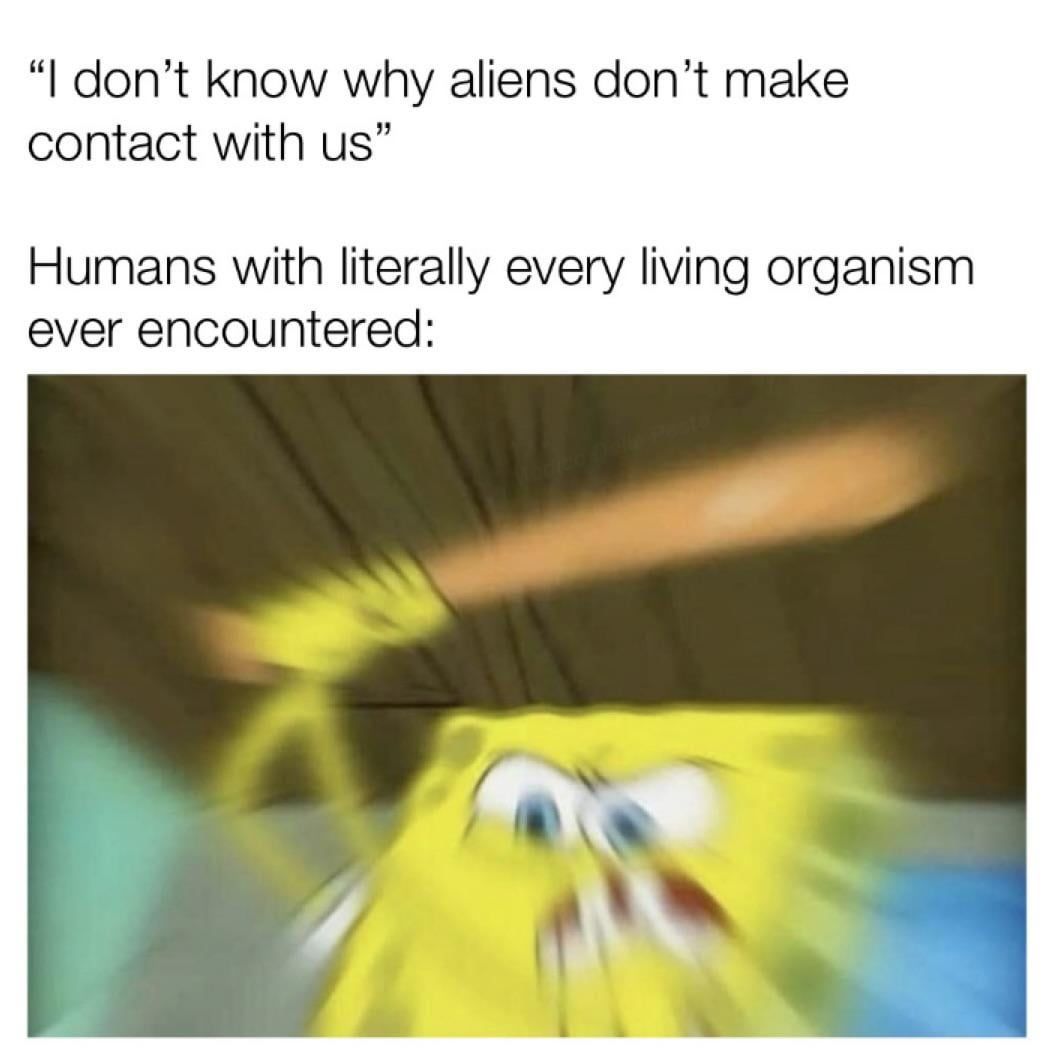this post was submitted on 05 Sep 2024
722 points (99.0% liked)
Memes
8530 readers
654 users here now
Post memes here.
A meme is an idea, behavior, or style that spreads by means of imitation from person to person within a culture and often carries symbolic meaning representing a particular phenomenon or theme.
An Internet meme or meme, is a cultural item that is spread via the Internet, often through social media platforms. The name is by the concept of memes proposed by Richard Dawkins in 1972. Internet memes can take various forms, such as images, videos, GIFs, and various other viral sensations.
- Wait at least 2 months before reposting
- No explicitly political content (about political figures, political events, elections and so on), !politicalmemes@lemmy.ca can be better place for that
- Use NSFW marking accordingly
Laittakaa meemejä tänne.
- Odota ainakin 2 kuukautta ennen meemin postaamista uudelleen
- Ei selkeän poliittista sisältöä (poliitikoista, poliittisista tapahtumista, vaaleista jne) parempi paikka esim. !politicalmemes@lemmy.ca
- Merkitse K18-sisältö tarpeen mukaan
founded 2 years ago
MODERATORS
you are viewing a single comment's thread
view the rest of the comments
view the rest of the comments


Unfortunately I'm on the side of: space is so unimaginably, incredibly, excessively, large that no other intelligent species is even remotely close enough to us to ever have the hopes of interacting with us. The best hope we have is finding "bacterial" life on another planet/moon here in the solar system.
Stupid physics... :(
That distance exists not only in space, but most likely time as well. Extrapolating from our singular data point, it would seem that the lifespan of a technological civilization is quite short. The odds of two of those being around at the right times for even one of them to detect the passing emission shell of the other is diminishingly small.
That and OUR ability to detect things is very, very limited. We're just barely getting to the point of using tricks to observe other planets' entire existence, let alone any animal on those planets.
Our perspective is certainly still too small to make any true determinations on the Fermi Paradox outside of ruling out some basic extremes.
Sorry, wrong comment
Even if they could reach us from some far-flung star system. There's no guarantee that we would be able to even communicate with them. For instance ants use pheromones to communicate. There's no way we could understand pheromones. We still can't talk to dolphins. The other problem, generally when a civilization comes in contact with a less evolved civilization they tend to wipe them all out.
Okay, but dolphins don't have writing or any other means of storing arbitrary information. If an alien had that capability, which they will if they are a civilization, things might be very different
Because we would live in a shared reality, if both species were to try to achieve communication, we would start out with something as simple as the basic building blocks of reality, like, say, the elements of the periodic table, to build out the foundation of communication. Then you would incorporate stuff like math and logic, and then it's downhill from there
There are ways to build up a system of communication even though the two sides are as different from each other as they can be, because ultimately, as we share the same reality, we have an objective basis to base our method of communication on. And that's all you need. It doesn't matter if we speak and they use odors, if we can both agree that hydrogen is hydrogen, and we can both perceive that we are in presence of hydrogen
Maybe we'll get the chance someday.
I think I've seen calculations that we could explore every star in the galaxy with self-replicating probes in something like a million years; and other civilizations could do the same.